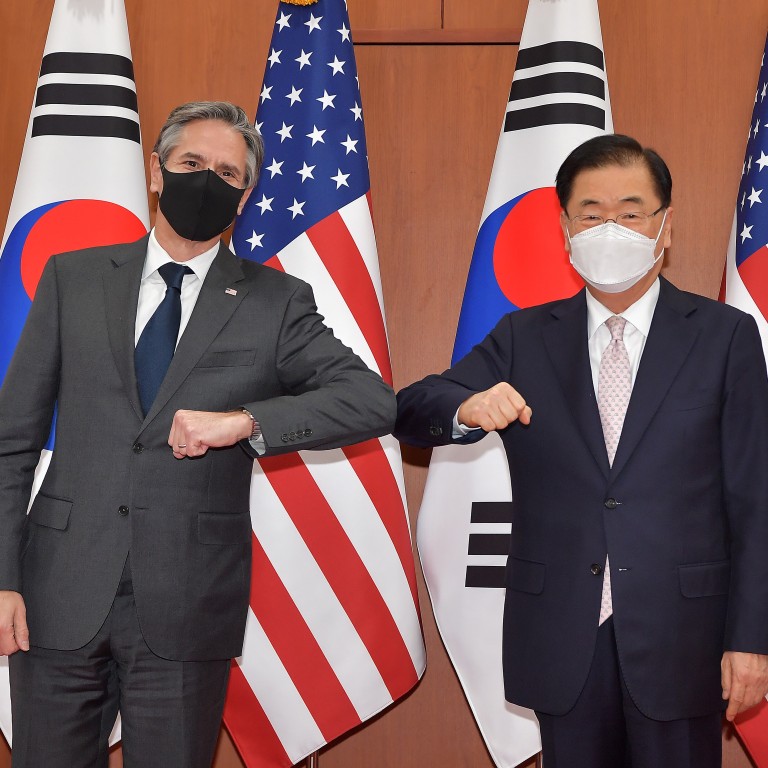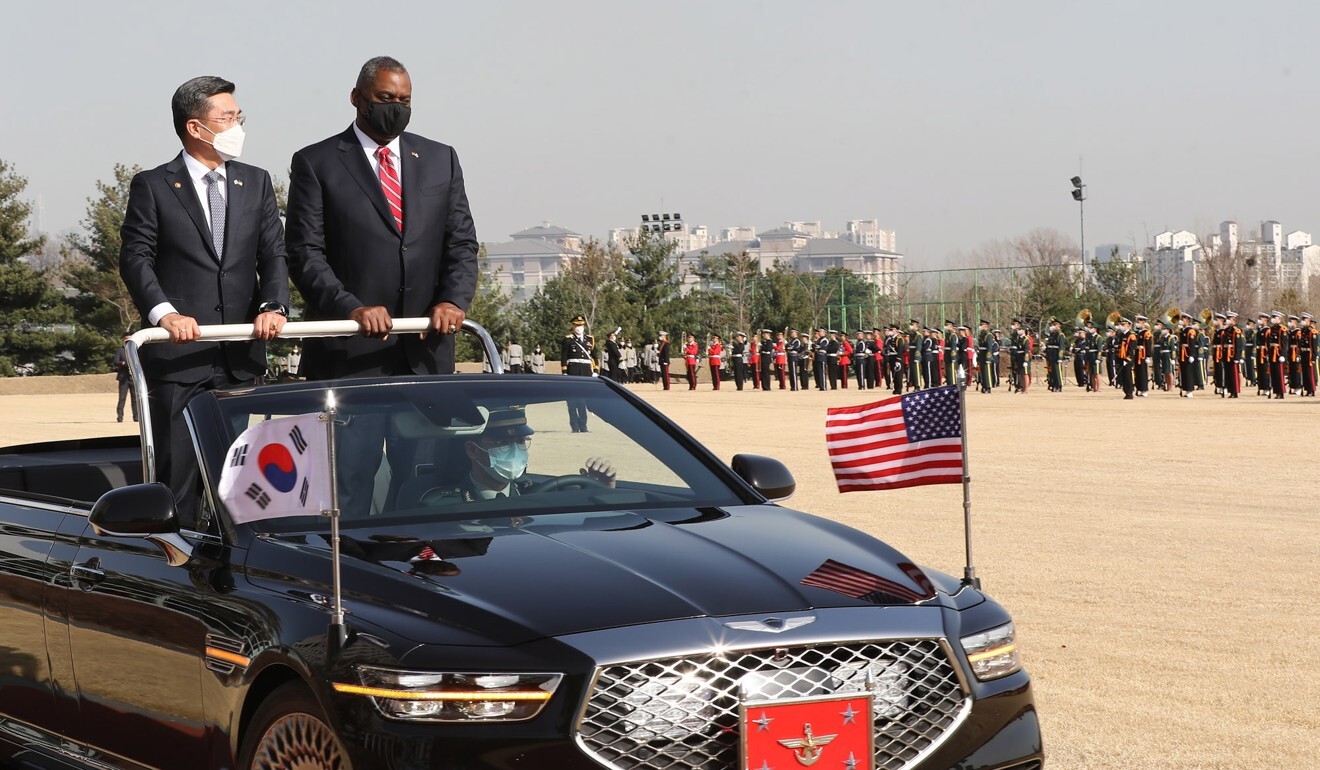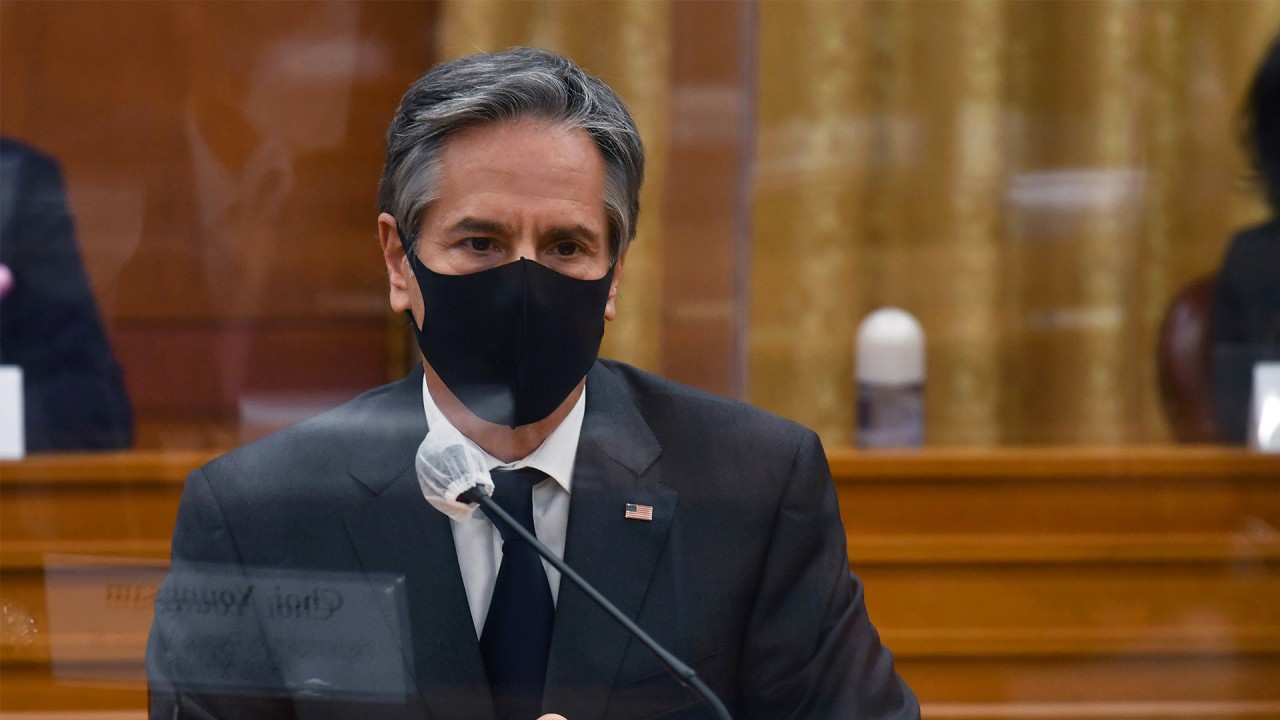
Blinken asks China to pressure North Korea into abandoning nuclear programme
- US Secretary of State, on trip to Seoul, says China’s economic ties with Pyongyang give it ‘tremendous influence’ and a ‘shared interest’ in ending nuclear programme
- Hours earlier, North Korean official Choe Son-hui had blasted the Biden administration’s attempts to contact Pyongyang as a ‘cheap trick’
“Virtually all of North Korea’s economic relationships, its trade … go through China so it has tremendous influence, and I think it has a shared interest in making sure that we do something about North Korea’s nuclear programme and about the increasingly dangerous ballistic missile programme,” Blinken said.
US and Japan warn against China’s ‘coercion and destabilising behaviour’
He said he would press Beijing to intervene when he meets Chinese officials in Anchorage, Alaska, on Thursday.
“Beijing has an interest, a clear self-interest in helping to pursue the denuclearisation of DPRK,” Blinken said, referring to the North’s official name, the Democratic People’s Republic of Korea.
“Because it is a source of instability, it’s a source of danger and obviously a threat to us and our partners, but China has a real interest in helping to deal with this,” he added.

Hours earlier, a top North Korean official, Choe Son-hui, blasted the Biden administration’s attempts to contact Pyongyang, calling it a “cheap trick” that would never be answered until Washington dropped hostile policies. The statement by Choe, the first vice-minister of foreign affairs for the North, is the first formal rejection of Washington’s outreach under Biden, who took office in January.
The White House said earlier this month it had reached out to North Korea, but received no response, and did not elaborate.
But according to the North’s state news agency KCNA, Choe said the attempts at contact were made by sending e-mails and telephone messages via various routes, including by a third country.
In South Korea, Blinken continues US message of countering China’s ‘coercion’
“What has been heard from the US since the emergence of the new regime is only lunatic theory of ‘threat from North Korea’ and groundless rhetoric about ‘complete denuclearisation’,” Choe said.
Speaking to journalists, Blinken declined to elaborate on the specifics of the US approach to South Korea, and stressed that it was completing a policy review while closely consulting its allies. This would be ready in a few weeks time, he said.

02:17
China using ‘coercion and aggression’ against Hong Kong and Taiwan, says Blinken
Choi Kang, Vice-President of the Asan Institute for Policy Studies, said South Korea stopped short of publicising concerns shared with the US over an aggressive China to avoid ruffling China’s feathers due to their huge trade relations.
The joint statement also “affirmed the importance” of South Korea-US-Japan trilateral cooperation and pledged to “continue promoting mutually-beneficial, forward looking cooperation to promote peace, security, and prosperity in the region”.
Choi of the Asan Institute said South Korea was prepared to step up the three-way collaboration, as long as it was confined to dealing with the North. “However, it finds it difficult to yield to US pressure to turn the three-way alliance into a joint front against China”, Choi said.
Additional reporting by Associated Press and Reuters

